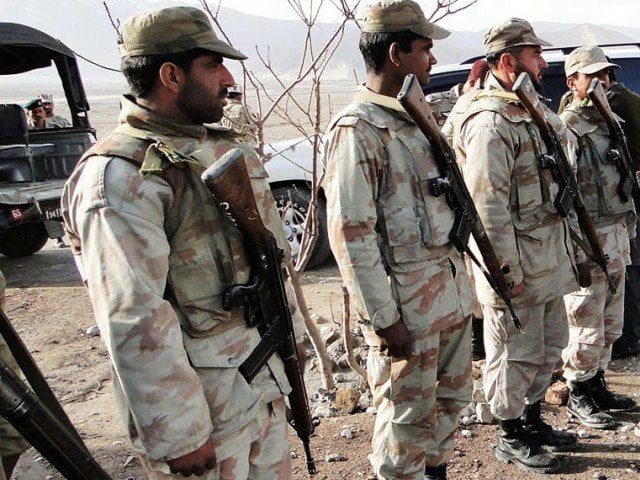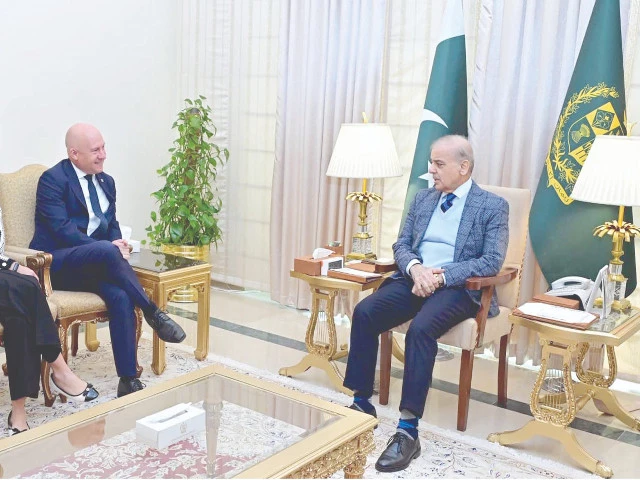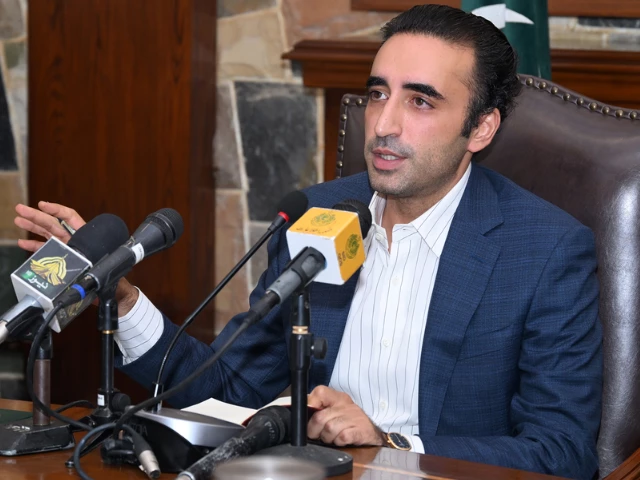- PM Shehbaz reaffirms support to tech partners Dawn
- PM Sharif seeks Ericsson’s global expertise as Pakistan eyes 5G rollout Arab News
- PM vows support to foreign investors The Express Tribune
- Prime Minister Muhammad Shehbaz Sharif meets a…
Category: 1. Pakistan
-
PM Shehbaz reaffirms support to tech partners – Dawn
-
Father, son among four gunned down in Bannu ambush – Dawn
- Father, son among four gunned down in Bannu ambush Dawn
- Gunmen kill 4 members of peace committee in KP’s Bannu Dawn
- Four anti-terror volunteers killed in Bannu ambush The Express Tribune
- Four peace committee members killed in Bannu gun attack
Continue Reading
-

Four anti-terror volunteers killed in Bannu ambush
Elsewhere, the spokesperson said the FC personnel seized a local leader of the banned BLA in the Sheikhri area of Kalat. PHOTO: EXPRESS
…Continue Reading
-

Exports dip 20% despite high inflows
LAHORE:While Pakistan celebrates record-breaking remittances that touched…
Continue Reading
-
Prices of POL products likely to decline – Business Recorder
- Prices of POL products likely to decline Business Recorder
- Petrol, diesel set for price cut Dawn
- Oil prices likely to drop by Rs5.49/litre from Jan 16 The Express Tribune
- Petroleum prices are likely to decrease in Pakistan Aaj English TV
- Petrol…
Continue Reading
-
JCP recommends confirmation of SHC additional judges – Business Recorder
- JCP recommends confirmation of SHC additional judges Business Recorder
- JCP confirms 10 additional high court judges Dawn
- JCP recommends confirmation of 10 SHC judges The Nation (Pakistan )
- JCP gives go-ahead to three permanent IHC judges The…
Continue Reading
-
KP govt reviews progress of Safe City project – Business Recorder
- KP govt reviews progress of Safe City project Business Recorder
- Peshawar Safe City project to be completed by end of this month Dawn
- Sohail Afridi orders timely completion of Khyber Pakhtunkhwa Safe Cities project Dunya News
- CM chairs meeting to…
Continue Reading
-
Govt says wheat reserves ‘satisfactory’ – Business Recorder
- Govt says wheat reserves ‘satisfactory’ Business Recorder
- Govt to monitor wheat procurement The Express Tribune
- Dar receives briefing on wheat stocks in Pakistan 24 News HD
- Bumper wheat crop expected as ‘Kissan card transforming Punjab…
Continue Reading
-

PM vows support to foreign investors
PM Shehbaz Sharif holds a meeting with an Ericsson delegation headed by President Patrick Johansson in Islamabad. Photo: PPI
…Continue Reading
-

Bilawal urges youth to lead change
Pakistan Peoples Party Chairman Bilawal Bhutto Zardari addresses a press conference at the Chief Minister House on Thursday, Sep 25, 2025. Photo: X
…Continue Reading